We often discuss the augmented reality efforts coming from the biggest players in Silicon Valley like Google, Facebook, Apple, and others, but one name that keeps coming up when you really begin to dig into the AR space is Vuzix. Since the late '90s, the company has quietly but deliberately worked to build itself into a viable competitor in the enterprise space via its wearable display technology.
But as the AR industry gradually spreads into the mainstream, Vuzix has subtly shifted its product designs to meet a future where AR isn't outlier tech but standard operating gear on the factory floor and in the hospital operating room.
• Don't Miss: Next Reality's 30 People to Watch in Augmented Reality for 2020
The first major example of this came in the form of the Vuzix Blade. Now, Vuzix has fully announced its Next Gen Smart Glasses, which we previewed last year, as a pair of frames that look as close to normal glasses as we've ever seen.
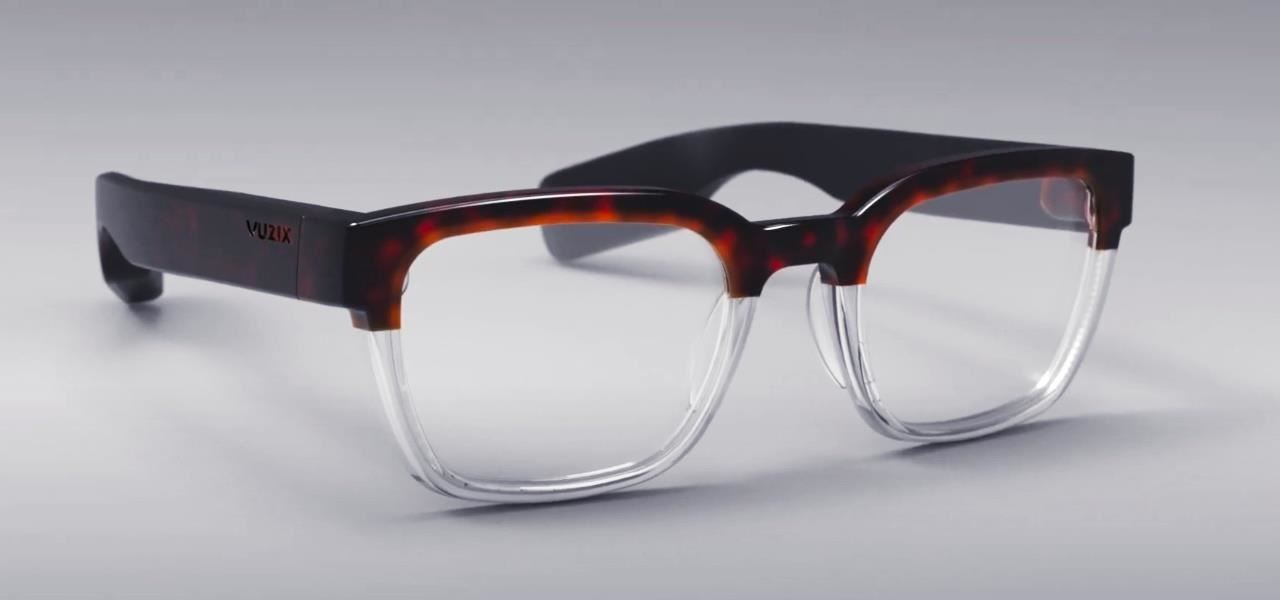
On the cusp of 2021, Vuzix CEO Paul Travers, a regular member of the NR30, took some time to talk to us about the future of smartglasses and what the AR space holds for the future in general.
Next Reality: What was the single most challenging aspect of responding to the twists and turns in 2020? From a market perspective and from a future product development perspective?
Paul Travers: I don't think there was a single thing…unless you consider the collective problem of doing business in a COVID-19 world that single thing. To accomplish doing business in this crazy almost medieval environment was loaded with challenges and, frankly, for Vuzix an opportunity. Sad in a way, but our products are designed for remote work and getting things done without having to travel. From how our internal sales team operated to helping our customers solve their remote worker dilemmas, it was a whole new world of challenges to maneuver through.

That said, augmented reality and smartglasses, in particular, are not only great for helping solve these problems from healthcare to factory audits to remote support but they are fast being integrated into the future of how things get done. Why put a person on a plane, waste all that energy and time on travel, and only support a customer a week when you can send a pair of glasses, anywhere in the world, for a fraction of the price and "be there" at a moment's notice. It's the future now, and finally being seen that way.
Next Reality: We've seen a fairly big shift in AR that indicates many are opting to focus on either the enterprise space or the consumer market exclusively. I know that Vuzix is generally enterprise-focused, but it seems like there's some upcoming consumer focus as well. Given the mixed history of a dual market focus in AR, what's your general strategy in addressing these vastly different markets in terms of their specific needs and use cases?
Travers: Vuzix's core business is focused on enterprise, but to do this well we have had to build a portfolio of technology to make glasses that people will actually want to and be able to use all day. Our technology, which started from efforts with the US Special Forces, is able to be employed in almost any industry—mass markets, defense, medical, etc. After all, what we are building is really the future of computing.

That said, Vuzix is not trying to be all things to everyone. We are focused on enterprise, from medical to manufacturing, and we are partnering in other markets like defense and consumer. Vuzix's IP intellectual property and know-how related to optics and wearable computing certainly opens the door to more widely accepted consumer-centric smart glasses coming from Vuzix going forward.
Next Reality: The big question about AR for many insiders is "how to mainstream it?" What is the key factor many are missing when attempting to address this question?
Travers: There are a lot of challenges, but the one thing we have learned over the years is that big, heavy, and ugly fails, every time. Also, nobody wants to look like they have just stepped out of a sci-fi movie. We are being successful today because our devices are lightweight, as light as 2.8 ounces, and incredibly functional for the job at hand. They are easy to use during an eight-hour operation or all day in a warehouse, but where we are going is style and fashion forward. We think for the larger markets this is critical. All of our efforts have been focused on solving this problem.
Next Reality: When you search for the name Vuzix on social media, there seems to be a large number of people watching the stock very closely. This year, Vuzix's stock experienced serious growth. What do you think is behind that growth? And what does it mean to operate in such a cutting-edge space while many traditional investors are watching the stock so closely and have such high expectations.
Travers: The future of computing is estimated to be in the many billions of dollars…some estimate over 100 billion. Vuzix has seen sequential growth quarter after quarter and very few others have pulled this off. If you look at our market cap, at around $350 million, it is in the noise of where we can and should be compared to the size of our total addressable market, which is in the billions of dollars for enterprise and the defense markets we sell into today. Vuzix is one of those 20-plus years overnight successes and we're really just getting started. At the same time, we remain one of the very few publicly-traded pure plays in this industry.
Next Reality: Clearly, companies like Facebook, Snap, Amazon (Echo Frames), and possibly Apple are working on wearables that will eventually challenge some of what Vuzix is trying to accomplish. How will Vuzix manage to establish a beachhead in the minds of mainstream consumers who aren't that familiar with the company's enterprise success?
Travers: Enterprise alone is worth billions. We will win in our core markets and partner with others to support the mass market space. To be clear, I am saying this industry is so big there is plenty of room for many winners, and I am certain Vuzix is going to be one of them. After all, and for example, there are a pile of competitors in the car space each offering something different for their particular customer base.
Next Reality: Let's talk about technical limitations versus the future of smartglasses. Chinese companies like Nreal and 0glass are promoting "birdbath" style AR smartglasses as a cheaper, more mainstream approach to something like Magic Leap, but these products aren't widely available in the U.S. Why do you think we haven't seen a major U.S. player promote this approach? In your view, is their approach/design/use case proposition not viable for Western consumers?
Travers: The "birdbath" design in reality does not create a sexy fashion-forward solution. It also occludes a large portion of the field of view, but appropriately designed waveguides are exactly like normal fully open windows. The waveguide approach with uLEDs shrink the size and keep the feel of regular glasses. Also, Nreal and the like still require a USB-C garden hose-sized cable and an expensive smartphone. It just is not the future. Maybe a distraction for some along the way.
Next Reality: The Vuzix Next Generation Smartglasses, which were officially unveiled back in September, looked impressive. Can you tell me what exactly it will be capable of and how it compares to other products in the space (North Focals, non-visual Amazon Echo Frames, etc.), when will it be available, and how much will it cost? Do you have any designer brand partners, or will Vuzix remain the sole designer of the frames?
Travers: We are working on a series of next-generation smartglasses, with cameras and without, monochrome and full-color displays. The camera-enabled solutions are pointed primarily at our enterprise customers. They are full Android-based and they have audio and mics with Wi-Fi and Bluetooth-enabled—a great companion to the phone or standalone operation. We are also working on our first pair with cellular support in the glasses. We have not yet set prices and our goal is production late 2021. We will be sharing more as 2021 unfolds.
Next Reality: Give us your take on what 2021 holds for AR in general. What do you think will happen in the high-end AR space (hardware-dependent solutions) and in the lowest end arena (software-only apps that are mainstream).
Travers: We see 2021 accelerating in our enterprise markets as AR continues to become more mainstream to support manufacturing, remote support, logistics, and healthcare. We have so many customers adopting and rolling out. It's an exciting time. I am not sure what to expect from others in 2021. We are really focused on the home front. One thing I can say for certain is you will see Vuzix innovating and continuing to build the future of the wearable computing space.
Just updated your iPhone? You'll find new features for Podcasts, News, Books, and TV, as well as important security improvements and fresh wallpapers. Find out what's new and changed on your iPhone with the iOS 17.5 update.
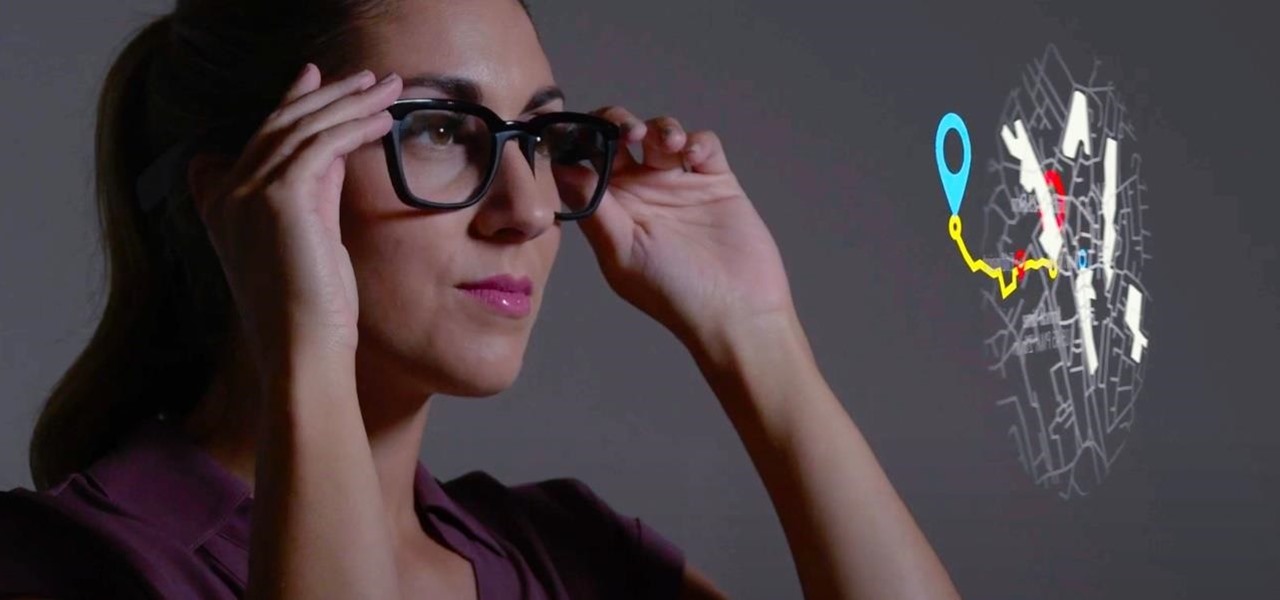



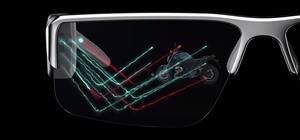


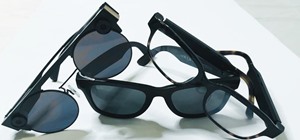





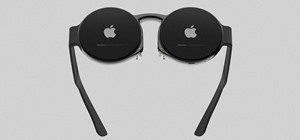









Be the First to Comment
Share Your Thoughts